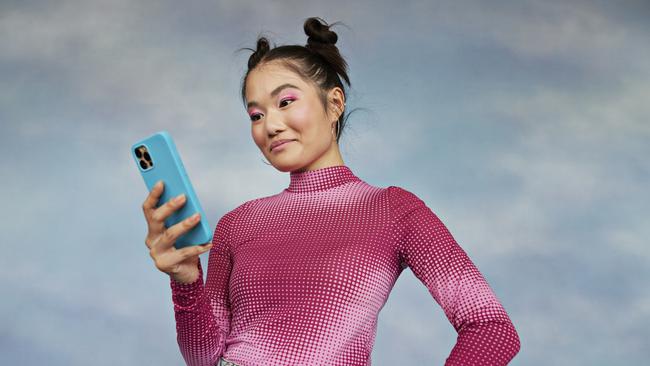Inside the mystifying language of Gen Z | Elspeth Hussey
Need help decoding Gen Z’s language, you are not alone writes Elspeth Hussey.

SA Weekend
Don't miss out on the headlines from SA Weekend. Followed categories will be added to My News.
‘He’s delulu, with no solulu.”
Most of us born before 2010 wouldn’t – and shouldn’t – attempt this flavour of sassy youth slang.
So imagine the raised eyebrows, when it came out of the mouth of none other than Anthony Albanese. This was in the lead up to the election, as the incumbent Prime Minister told young voters that his opponent Peter Dutton was “delusional, with no solution”.
Would he have braved some of the other new favourites? Sigma. Slay. Main character energy. If you need a translation, then you, too, have lost your grip on modern slang.
I can recall the exact moment I knew I had. A young cameraman and I were on a road trip to shoot a news story. Hours of conversation turned to plans for the weekend, when he told me he was going to Sydney with his mates to “get lit”. I nodded. I had no clue what he meant.
When he wasn’t looking, I Googled it. Turns out, I’d been out of the loop longer than I thought. “Lit” had already evolved from “drunk” to “amazing”.

In what feels like the blink of an eye, the slang of my millennial youth – “totes”, “cray”, “yolo” and the cringe-worthy “talk to the hand” – has been replaced by a new style of youth speak that feels … different. Faster, cheekier and harder to decipher.
“Skibidi” was one of the top three slang words listed by the University of Oxford this year. Some say it means good. It can also mean bad. And weird. And cool. It’s a nonsensical word without a fixed meaning that makes everyone over the age of 25 feel terribly old. One child told researchers: “We just say it randomly to each other in the playground because it’s funny.”
“Slay” – meaning to do something spectacularly well or impress someone – took out top spot, followed by “sigma” – often used to describe something that’s good or cool.
Other popular new additions: “she ate”, “rizz” and “no cap”.
“She walked in with unmatched rizz, served a look so hard she ate, and honestly, she slayed the entire vibe – no cap.” This loosely translates to: “She walked in with total charisma, looked amazing, and honestly, she impressed everyone – seriously, not even exaggerating.”
How many of these do you know?
●Bussin’: very good, especially referring to food
● Drip: stylish or fashionable
●Snatched: a high compliment; “her make-up is snatched”
● Gyatt: surprise or admiration, often of large buttocks
● Stan: obsessive fan, combines “stalker” and “fan”
● Simp: desperate for affection or romantic relationships
●Cheugy: out of date, unfashionable
But the fleeting nature of meme culture and digital life means by the time you learn these, you’ll likely be out of touch again.
“What social media has done has made the transition of slang from the fringes to mainstream more rapid,” says Dr Aaron Humphrey, Media and Digital Humanities senior lecturer at the University of Adelaide. “Kids used to pick up slang from TV, radio and cartoons, all made by adults,” he says.
“‘Cool’, ‘hip’ and ‘dig it’ all came from jazz music. Now, they’re getting it from TikTok, where teens are producing media for teens. Terms like ‘queen’ and ‘slay’ or ‘slay queen’ (meaning ‘she’s amazing’) are black/queer euphemisms that have made their way to the mainstream through social media.”
But he says some of the words filtering into youth vernacular have concerning origins.
“There is some worrying subcultural stuff around words like ‘sigma’.” He’s referring to the “manosphere” – an online universe of male right-wing influencers, brought into recent public discussion by Netflix drama Adolescence. This is a murky world that preys on vulnerable young boys, with its own disturbing vocabulary. Where “alpha” means a socially dominant man, desirable to women; “beta”, submissive, weak one; “sigma”, a loner or introvert; and SMV refers to sexual market value.
“I was trick-or-treating with my kids for Halloween and some children yelled out ‘your costumes are so sigma’,” Humphrey says.
“I think some kids say these words not really understanding what they mean or where they originated from. They are sponges. What parents can do if they hear their kids saying these words is ask ‘Do you know what this means? What do you think it means?’ I think it’s good for parents to try to keep abreast of what’s happening with slang.”
He says what parents shouldn’t do, is try to use the words. “Nothing will make kids cringe harder than hearing their parents say ‘skibidi’!
“Every time Oxford Dictionary says these are the top words, they’re instantly not cool and kids soon stop using them.”
Only time will tell if Albo’s attempt will spell the end for “delulu”.




